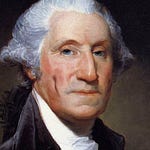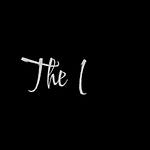My wife grew up on a farm in Alberta. Her dad was a hard working dairy farmer who had immigrated from Germany prior to the second world war. He found his way to some hardscrabble land between Edmonton and Calgary and began his dream of a free life. He had 5 children and did everything he could to make it all work. Their life was filled with hard work and an endless battle to make ends meet, but this hard working man always put his head down and worked to make his family’s life better. My wife tells stories about the efforts her father put in. Driving the county road grader to help supplement income, working long days in the dairy and on the land all in the efforts to build a life that was unavailable to him in Germany.
Farm life can be filled with frustration. Equipment is always struggling to stay working, accidents happen, and making ends meet with 5 children is always a challenge. He was a man who picked up his burden every day because the reward of freedom was greater than the struggles.
Yet eventually his work efforts and tragedies on the farm took their toll. The milk board would set the price too low, or the winter would come too early - and the government was always there to take their unearned share. His efforts were admirable but the compounding burden of work, tragedy on the farm in the loss of a son, and an impending feeling of inability to get ahead eventually were too big a burden to bear. His health deteriorated and he died too young - perhaps of complications from a failing body, but also from an unaccounted for broken heart. The hope for a free life was always on the horizon, but shackled by the burdens of price controls, inflationary fiat currency, and the burden of taxation, that horizon was in an ever-present movement away from the man.
The story isn’t new - humans have been toiling in work, left over from a bygone curse since the beginning of their existence. Horizons have been forever fleeting and as Hobbes famously knew, there are some people who get to tell others what to do and that “the condition of man, is a condition of war of everyone against everyone.” It certainly can be defeating and filled with discouragement. Yet the innate nature of humanity is towards liberty. We are born free, unshackled to any burden imposed by man or other devices. So we soldier on, inherent with the flame of freedom as the motivating impetus to continue. We see the faces of our children and grandchildren and we have instinctive drives towards provision and protection of them. We hope for a free future for them - and we go out of our way to make it available. Their future is more consequential than our own; a hallmark of beauty within the human spirit. So we pick up our packs filled with burdens and we sacrifice the fleeting horizon for the hope that they might get a little closer than we did.
The 21st century has been an interesting battle between those that want to rule over others and the insatiable spirit of man. The rulers believe themselves made of better clay than the rest of us and pine for a controlled spirit. They see it as their duty to make sure that the inner hunger for the horizon is quelled. They believe that our happiness is something that can be traded for security. They have moved the horizons man strives for further away from his grasp with more regulation and more burden upon the average person towards compliance. With every move towards that panacea of freedom, the elite believe another hurdle shall be placed. They will do it with ambiguity and lack of clarity. They will change the rules or the goal, or the game. Anything and everything to make sure that the average person understands their place in the world. They shall be the rulers, and we shall be thankful that they are there. They keep us divided and fighting about inconsequential things - unsolvable ideas that exacerbate their control and brutality.
They have control over the money, over the technology, over the media, over the food, over the medicine, over every institution once trustworthy. It is a space they feel compulsion towards because they cannot abide in the idea that a superiority of some does not exist. So we struggle in a laughable game to them, to pull that fleeting horizon closer.
Control is a dangerous drug. It pulls at the worst parts of the fallen and fallible. The original sin wasn’t disobedience, it was the temptation to be like God. The story of the garden isn’t about a religious exercise - it was about understanding that the greatest temptation of the heart is to be the creator. Men institute and exercise power over others because they believe themselves to be the Gods of this world. Humility is vanquished and the division amongst those that want control over others and those that want to live a peaceful life becomes a dramatic chasm.
Look through the issues of the last 50 years and ask yourself how many of them are consequential to the freedom of the individual and hold the objective of a peaceful life, and how many of them are about controlling others. Nearly every law or rule on the books is not about how people can live a life of liberty. Instead they are oriented to the controlling of the world. There is an air of frustration in every new law that gets written. The ruling class act as frustrated parents who continuously try to discipline our bad behaviors and execute more control over everything that they see as wrong with the world and by association, us.
We are a managed people. When they can’t do it through draconian laws or ambiguous and confusing rules, they do it through unsolvable wedge issues. They focus our attention on abortion or sexuality or pit us against each other about economics and our way of living. They elevate the aspects of incongruence and convince everyone that the wedge issue is the most important issue on the table. We distract ourselves from the task at hand, which is restoring liberty to the individual, and instead focus on the most irreconcilable issues in our culture.
But there is an example from history that might help us realize that what is being done, is the very essence of what Hobbes said would happen. There will always be people who insist that they are made from the better clay and that the manipulation of the masses will be easy and more importantly, justified. In 1776 the country was in the throws of revolution. War had started and the people were struggling to understand what the consequences of this rebellion were going to be. Virginians were resistant to help their brother colonists in Massachusetts because they were disparately different people. They didn’t come from the same religion, they had different interpretations of economics and they had vastly different moralities around slavery. So when the continental congress met, the discussions around how to solve the moment of crisis was inevitably met with skepticism and doubt that these two kinds of world views could come to the same table and address the crisis of the moment.
Many would like to rewrite history to insert an idea that the Continental Congress was a panacea of liberty ideals where everyone saw the issues exactly the same because of the existential threat of revolution and tyranny. But nothing could be further from the truth. When Thomas Jefferson sat down to draft his initial Declaration, there were many discussions about the institution of slavery and how it was Britains responsibility to bear for what atrocity had been foisted upon the colony’s. Yet when the final draft was done, all references to slavery were gone. Many might see that as a moral compromise too grave to give in to. How could the abolitionist puritans sit at the same table as the slave holding South Carolinians? Why did they give up their deeply held convictions about something that held such magnitude in their core beliefs?
What Jefferson was intimating in his writing was exactly what the powerful have done for as long as the division of people has existed. He saw this moral issue as problematic to his premise of the Declaration. How could a county that made claim to the elevation of the individual, reconcile with this morally bankrupt institution? But when it was all said and done, the moral issue of slavery was postponed and the moral tragedy was delayed for another generation.
The answer to all of our dilemmas is in the attitudes and hearts of the people. Just as in our time, the morality around issues that people hold 100% conviction about, often are the ones that move focus away from those controlling us to the wars between us. Certainly in the time of the revolution there were people who held absolutist positions about slavery - both for and against. The tragedy around slavery was self evident to so many…but it wasn’t to everyone. As we look back, it is easy to blame the founders for kicking the can down the road and avoiding the hardest topic of their era. But the truth might be that the morality of the people were not ready to address the issue. Most of the wedge issues take spiritual transformation in order to become a part of any culture. The issues of our era like abortion may be equally as repugnant to some as slavery inevitably was to the abolitionists of the founding era, but our culture has moved far away from a place of spirituality. Making a moralist claim upon the hearts of people who have no connection to a creator or spirituality is a clanging cymbal - filled with harsh tones that are easily rejected.
The tragedy of solving problems with political force is that inevitably someone loses - and that someone is usually the person around which the subject is focused. In the case of slavery, millions of people continued to be harmed while the country wrestled with the issue, and the abolitionists made the case that this was the most significant and spiritually depraved issue of the country. Nearly 80 years passed between the founding and the abolition of slavery and there invariably were stories of tragedy that came with that passing of time. But the argument was won, not at the ballot box, and frankly not even on the battlefields of the Civil War, but ultimately with the persuasion of people that the issue had to be addressed in the hearts of the people of the country.
I don’t know what the outcome of abortion will be in America. The defense of the defenseless is something I feel strongly about and that there is a role for government in this; but I am also convinced that this issue is one that we have to work to solve spiritually.
Without any deep conviction about a culture of life, then any use of force by the government through regulation or prohibition will have a more divisive sting than a positive outcome. I want our country to believe that life is valuable - at all stages. I also know, that we have abandoned the efforts as a spiritual people at the discussion. We use our instincts of government force to do our own controlling - and without the more imperative appeal to the hearts of people around the issue, we will only make more division.
Stepping back even further, I believe we are in another 1776 moment. Government has utilized the full effect of force and control upon its citizenry all around the world. The existential crisis staring us in the face is one that holds the choice of a free life, or one that is completely controlled. The future that is most apparent is one in which our children will not know the blessings of liberty. We are being challenged by the elites amongst us about the presupposition that all people are created equal. That dilemma is one that our country and our people recognize fully in the moment and are moving towards change. The reality is that if we don’t solve the gravitational pull of totalitarian governments, there wont be a landscape to discuss the moral future of our people. It may not be a satisfactory answer to many, but we might just be in another moment of delayed compromise. It is tragic and one that many will not be able to tolerate because they already hold strong convictions about the issues. But I might appeal to all of us to sit together and start the conversation. There will be more tragedy around abortion and other moral issues of our moment - but we must also admit that the work that has to be done should not come at the force of the government. If we choose to use that force to uphold moral positions without a moral people, we will be unsuccessful in our desired outcomes.










